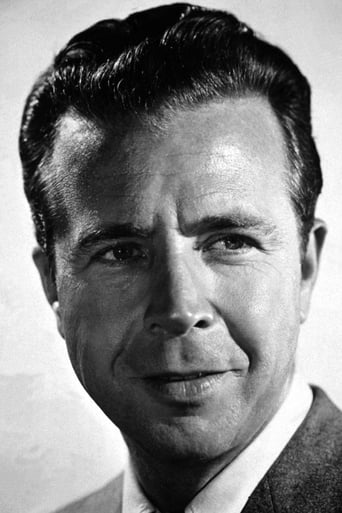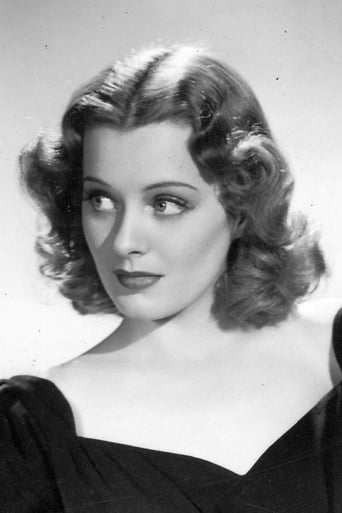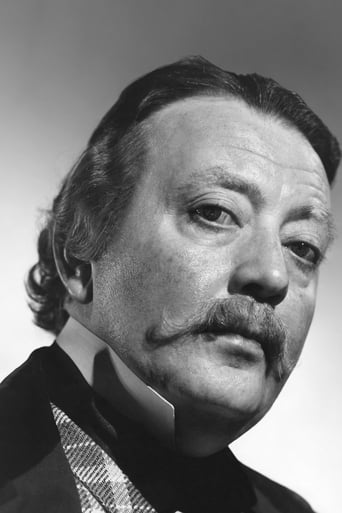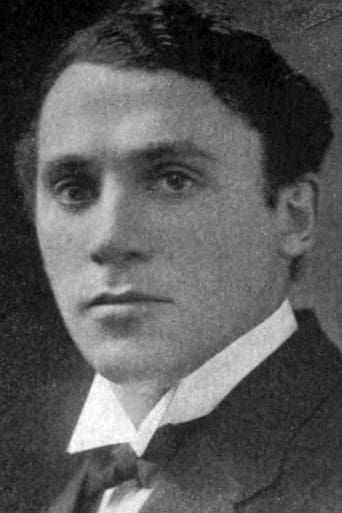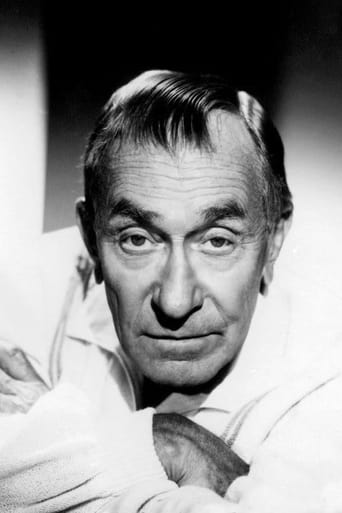Colibel
Terrible acting, screenplay and direction.
Stellead
Don't listen to the Hype. It's awful
CommentsXp
Best movie ever!
Abbigail Bush
what a terribly boring film. I'm sorry but this is absolutely not deserving of best picture and will be forgotten quickly. Entertaining and engaging cinema? No. Nothing performances with flat faces and mistaking silence for subtlety.
Martin Teller
Short but sweet comedy about a working schnook who gets pranked into thinking he's won a big pile of cash. I really enjoyed how this movie played out, with some heartfelt turns and nice character moments that made it feel a bit more Capra-esque than your typical Sturges. It doesn't really get too manic, and just has a pleasant vibe to it. This could have been a wackier movie, or a more cynical one, but I appreciate that it didn't go in those directions. I also appreciate that it doesn't torment the audience by dragging out the misunderstanding too much. Dick Powell and Ellen Drew are terrific together, they make a charming couple, and the film sports a roster of enjoyable character actors too. The ending is a bit predictable, but other moments aren't.
Michael Neumann
This early Preston Sturges satire suffers by comparison to his later films, but even if it never reaches the dizzy heights expected of a Sturges comedy it still presents an enjoyable (if at times too predictable) farce. The earthbound scenario offers none of the director's usual madcap flights of fancy, following an unlucky entrant in a marketing slogan contest (Dick Powell) who mistakenly believes himself the winner of a $25,000 grand prize. It's all the result of an innocent practical joke, but the gag backfires when everyone else, including the contest sponsor, believes it too. The unsuspecting Powell suddenly finds the world off his back and at his feet, and the consumer frenzy that follows shows glimpses of the classic Sturges brand of anarchy, sadly lacking from the rest of the film. Lots of running around and shouting at double-quick speed can't really camouflage the lack of belly laughs, but the cast works up plenty of enthusiasm, and the final image (look quick) is wonderful.
theowinthrop
As the follow up to "The Great McGinty" Preston Sturgis returned to an old play of his that was written in 1931 and called "A Cup Of Coffee". Sturgis, for all of his cynical slant in his comedies and screenplays, had a pretty accurate view of the American Dream. In "Christmas In July" the hero is trying to make it to fame and fortune overnight - by winning a jingle/slogan contest on the radio. And the truth of the situation is far more complicated than we credit it in being. Powell has entered every contest he can, figuring that the law of averages will eventually come to his assistance and win him the big prize. He doesn't stop to think that the same viewpoint is held by everyone else who is competing against him. He also does not like the regular hard work ethic that is pushed by his office manager (Harry Hayden) to concentrate on his job and you will be a success - not spectacular but one who meets his debts and looks the world in the eye. Powell is not opposed to hard work, but he hates being one of the herd of numberless drudges like most of us.He has gotten three of his office friends so fed up with his constant sweep-stake fantasies that they decide to send him a fake telegram that he has won the Maxford House Coffee sweepstakes. He has a slogan "If you find you can't sleep at night, it is not the coffee, it's the bunk!" Cute (a pun of course), he keeps explaining it to everyone who couldn't care less. But the Maxford House Radio show which was supposed to find a winner is unable to reach a timely decision (William Demerest is trying to convince them to favor one that he thinks is a snappy slogan, and Robert Warwick wants a more formal and dignified short slogan). Taking advantage of this impossible tie situation, the trio send their false telegram - and Powell and his girlfriend Ellen Drew go crazy.But that's just it - everyone goes crazy. Powell's boss Ernest Truex, who has rarely given him a second glance, when he hears about this thinks Powell is a business genius and starts considering promoting him. The staff of his accounting firm and various businessmen all bow and scrape to him. The three friends who play the joke find it has gotten so out-of-control that they can't stop it (they don't dare to). The joke even is pulled over the coffee company owner, Dr. Maxford (Raymond Walburn, who almost steals the film from Powell). Maxford is disgusted by the way the slogan jury under Demerest won't do as he orders, and he is totally prepared to accept the fake telegram as proof that the same committee didn't even bother to notify their employer first!The film is pretty funny throughout, as Powell enjoys the height of glory and the depth of despair as the truth about the telegram hits Maxford and the people from whom Powell has been buying goods (gifts for his family and friends - since it is summer the title of the film makes sense). But in a society that worships success, should it penalize someone who innocently seemed to be successful but wasn't? The conclusion of the film suggests that some trial and error is required, but Sturgis still finds that the hand of fate may be necessary to allow someone to show his or her full potential.
KyleFurr2
This was one of Preston Sturges's best movies on his first time directing that included "The Great McGinty" and "The Lady Eve. The movie stars Dick Powell and Ellen Drew as a couple who are engaged but Powell wants to wait to get married because they don't make enough money and his mind is on a contest for $25,000 that he entered for a slogan of a coffee company. Powell's friends at work play a trick on him by writing a fake letter saying he won the prize money but once Powell opens it they can't get to him on time to tell him it's a fake. Then Powell gets a promotion and starts to buy everything for all his friends and family but not knowing it's a fake. It's a very funny movie that's one of Sturges's least known work.


